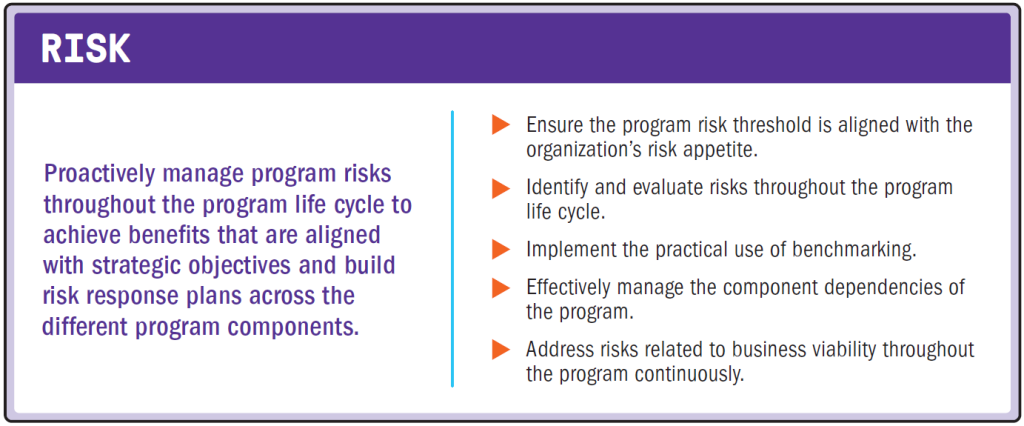The PgMP Certification Risk Principle explains that a risk is an uncertain event or condition that, if it occurs, can have a positive or negative effect on one or more program objectives. Risks may impact programs in both helpful and harmful ways. Negative risks, often referred to as threats, can hinder program implementation and benefit realization. Positive risks, or opportunities, can enhance program efficiency and support greater benefit realization.

To gain a comprehensive understanding of the PgMP Certification Risk principle, consider the following steps:
- Dive into Chapter 2.7, titled ‘Risk,’ within the Standard for Program Management.
- Enhance your knowledge by purchasing any book focused on PgMP preparation and reading the chapters specifically dedicated to the program risks.
- Explore instructional videos on this topic:
4. Test your knowledge to complete the Risk principle study.
Support your colleagues on their journey to becoming PgMP-certified!
Share your recommendations on effective ways to learn about the Risk principle, whether through books, videos, articles, tutorials, or other resources, in the comments below.
